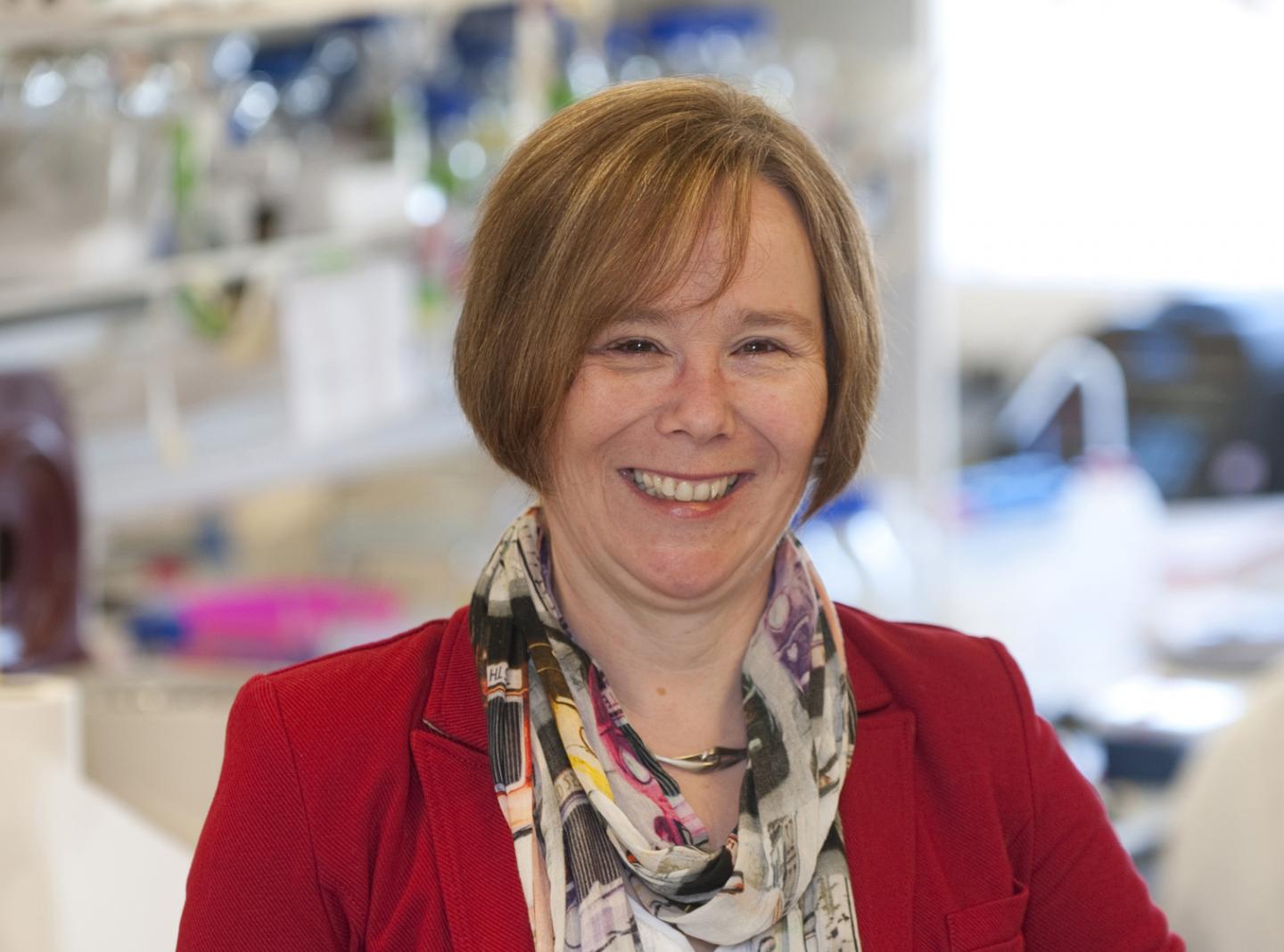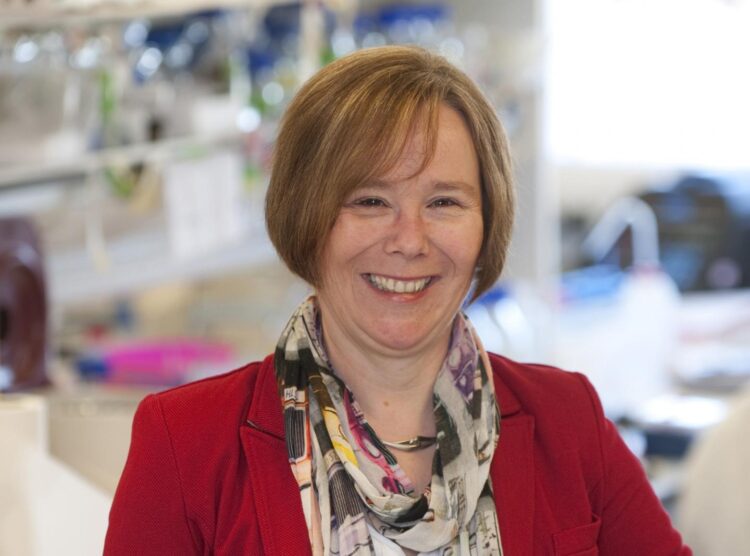
Credit: University of Leeds
The UK’s leading scientific academy – the Royal Society – has awarded one of its most prestigious research professorships to an academic at the University of Leeds, to develop new ways of ‘seeing the unseen’ – the way that proteins interact to shape or to destroy memories.
The award will allow Professor Sheena Radford FRS, Director of the Astbury Centre for Structural Molecular Biology at Leeds, to focus on one of the big unanswered questions in biology – the role that a protein structure called amyloid plays in both building memories that can last for decades, but also in the devastating memory loss experienced by people with neurodegenerative diseases.
To conduct the research, Professor Radford and her team will first have to develop new experimental techniques to allow scientists to visualise the processes where proteins come together with each other and interact with other components within a cell.
Her work will lay the foundation for one of the first research hubs in the world, to be based at the University, that will map protein interactions, allowing scientists to understand those interactions which are necessary for healthy life and those that cause disease. Incorrect interactions are known to be crucial factors in diseases spanning cancer, cardiovascular disease, diabetes and dementia.
Professor Radford said: “Proteins are the workhorses of life – there are tens of thousands of proteins in the human body. They come together in fleeting interactions to carry out the vital chemical and signalling processes necessary for life.
“The aim of the research is to develop new experimental approaches that will enable us to visualise and map those interactions in real time within cells and tissues. When we have that information, we can begin to understand how the complex choreography of protein molecules gives rise to healthy life, and how aberrant protein behaviour can cause disease. ”
The Research Professorship is the premier award made by the Royal Society. It goes to internationally-acclaimed scientists who are undertaking important and original research and it allows them to be released from other duties to focus on their research. The Royal Society has announced seven research professorships today (15 January), covering the fields of physics, ecology, mathematics, computer science, astronomy, medicine and cell biology.
Professor Simone Buitendijk, Vice-Chancellor of the University of Leeds, said: “The award from the Royal Society is a recognition of the huge advances that Professor Radford and her team have made in understanding the structural and molecular basis of life.
“There aren’t many scientists who can say their research is opening up a new chapter in biology, but that is exactly what Professor Radford will be doing and I am proud that Leeds and the Astbury Centre is at the heart of that endeavour.”
The Royal Society award will last for five years.
The good and bad of amyloid fibrils
The first phase of Professor Radford’s research will focus on a protein structure known as amyloid.
An amyloid structure can form when a protein fails to fold properly and forms clumps or fibrils. For more than a century, scientists suspected that amyloid formation causes disease, although the process is still not fully understood. Some amyloid diseases cause memory loss, such as that experienced by people with Alzheimer’s or Parkinson’s diseases.
More recently, though, scientists have discovered that fibrils are also essential for healthy cell functioning, such as in the laying down of long-term memories.
Professor Radford added: “The most fascinating question is how the amyloid fold can either create or destroy memory – the good and the bad amyloid fibrils. It’s all about the fleeting interactions that these amyloid assemblies make, and we need new ways to track and understand these interactions in our cells to truly understand them.”
Despite major advances in electron microscopes, which are capable of revealing the structures of complex proteins including amyloid fibrils, researchers have been unable to see and understand these dynamic and fleeting interactions.
Professor Radford believes by exploiting recent advances in chemical biology and biophysics, it will be possible to open a new window onto the world of protein dynamics.
Hub for Dynamic Disease Mechanisms
Professor Radford will develop one of the world’s first research hubs for mapping dynamic protein interactions. Known as the Centre for Dynamic Disease Mechanisms at Leeds, it will bring together researchers in academia from a range of backgrounds and from across the globe, working with clinicians and industry to get a deeper understanding of the brief encounters that proteins make to choreograph healthy life.
Professor Dame Linda Partridge, Vice President of the Royal Society, said: “We are delighted to have appointed seven Royal Society Research Professorships this year. It is becoming more important to enable world-leading talent such as these exceptional scientists. By offering long term support to carry out exciting and visionary research, these scientists will contribute to and strengthen the continued success of UK science.”
###
Notes to editors
For further information or to arrange an interview with Professor Radford, please contact David Lewis in the media office at the University of Leeds: [email protected] or on +(44) 07710 013287.
Images available.
University of Leeds
The University of Leeds is one of the largest higher education institutions in the UK, with more than 38,000 students from more than 150 different countries, and a member of the Russell Group of research-intensive universities. The University plays a significant role in the Turing, Rosalind Franklin and Royce Institutes.??
We are a top ten university for research and impact power in the UK, according to the 2014 Research Excellence Framework, and are in the top 100 of the QS World University Rankings 2020.??
The University was awarded a Gold rating by the Government’s Teaching Excellence Framework in 2017, recognising its ‘consistently outstanding’ teaching and learning provision. Twenty-six of our academics have been awarded National Teaching Fellowships – more than any other institution in England, Northern Ireland and Wales – reflecting the excellence of our teaching. http://www.
Media Contact
David Lewis
[email protected]





